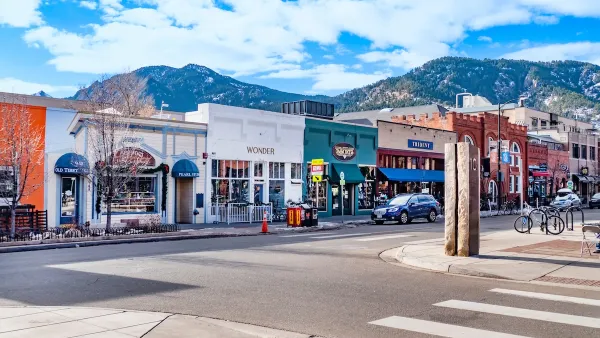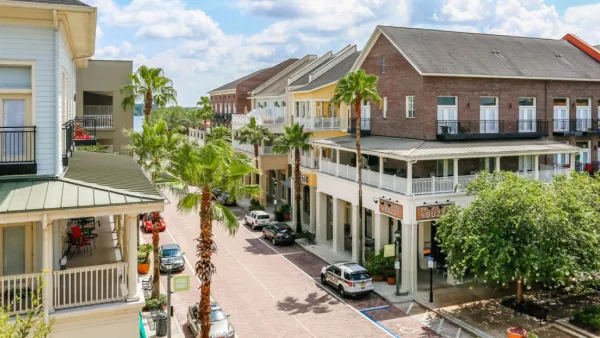In Kansas City, many tax increment financing zones are simply luring existing business to move and creating new sprawling development.
"Che and Elvis fashions caught my eye on a recent walk around Metro North Mall at U.S. Highway 169 and Barry Road. The shopping center, which opened in 1976, is on its last legs. Vacancies appear to outnumber the going concerns. The Limited is gone. In its place are stores with names like Unique Stuff and Ultimate Gifts.
Metro North's limited future is also evident at JCPenney, one of the remaining anchor tennants. Signs on the doors announce that the store will close in August. "We are relocating to better serve you," the sign says. A map points to a shopping center under construction four miles to the west.
The sign says a lot about what passes for economic development in Kansas City. Taxpayers are enabling the construction of JCPenney's future home. And for what? To relocate an existing department store.
JCPenney is moving to Tiffany Springs MarketCenter. Work on the shopping center, which is near Interstate 29 and Missouri Highway 152, is approaching completion. The familiar signs of Home Depot, Target and Best Buy are in place, awaiting a spark of electricity.
Tiffany Springs MarketCenter sits in a tax-increment-financing district. TIF is a tool that cities can use to spur development in distressed areas. But in Kansas City, TIF is often used to make sprawl."
FULL STORY: In Kansas City, tax breaks don't cure blight — they create sprawl

Maui's Vacation Rental Debate Turns Ugly
Verbal attacks, misinformation campaigns and fistfights plague a high-stakes debate to convert thousands of vacation rentals into long-term housing.

Planetizen Federal Action Tracker
A weekly monitor of how Trump’s orders and actions are impacting planners and planning in America.

In Urban Planning, AI Prompting Could be the New Design Thinking
Creativity has long been key to great urban design. What if we see AI as our new creative partner?

King County Supportive Housing Program Offers Hope for Unhoused Residents
The county is taking a ‘Housing First’ approach that prioritizes getting people into housing, then offering wraparound supportive services.

Researchers Use AI to Get Clearer Picture of US Housing
Analysts are using artificial intelligence to supercharge their research by allowing them to comb through data faster. Though these AI tools can be error prone, they save time and housing researchers are optimistic about the future.

Making Shared Micromobility More Inclusive
Cities and shared mobility system operators can do more to include people with disabilities in planning and operations, per a new report.
Urban Design for Planners 1: Software Tools
This six-course series explores essential urban design concepts using open source software and equips planners with the tools they need to participate fully in the urban design process.
Planning for Universal Design
Learn the tools for implementing Universal Design in planning regulations.
planning NEXT
Appalachian Highlands Housing Partners
Mpact (founded as Rail~Volution)
City of Camden Redevelopment Agency
City of Astoria
City of Portland
City of Laramie





























